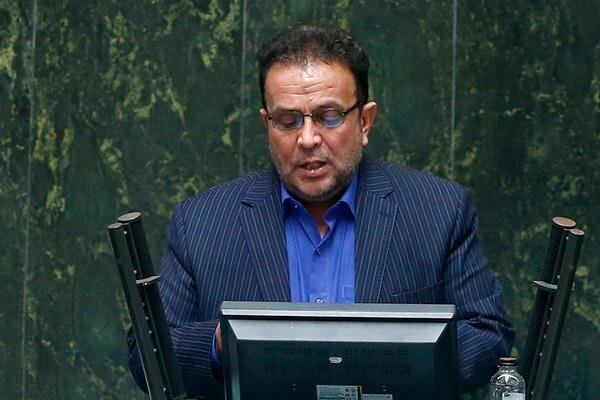JCPOA hang-up is in Europe: MP

TEHRAN – A senior Iranian lawmaker has said that reviving the 2015 Iran nuclear deal requires seriousness and good faith on part of Europe.
Mahmood Abbas Zadeh said the Europeans must resolve the crisis created by the U.S in the Joint Comprehensive Plan of Action (JCPOA), the official name for the nuclear agreement.
In an exclusive interview with Islamic Consultative Assembly News Agency (ICANA), Abbas Zadeh said that the French President’s phone call with the Iranian president carried a diplomatic message and showed Iran’s upper hand in the Vienna talks.
“Although France had played the role of a bad cop in the recent negotiations, it confessed to Iran’s right to distrust of the United States,” the member of the National Security and Foreign Policy Committee of the Parliament said.
Reaching a good deal is not out of reach, he said, adding that Iran manages to overcome the impact of sanctions despite the hardships of the sanctions.
He said that Iran has succeeded to open the way for exporting oil and expanded the economic relations with neighbors.
“Iran also in cooperation with China and Russia and creation of an efficient and dynamic diplomacy has created an important economic bloc in the East of the world,” he added.
The lawmaker made the remarks in reaction to recent phone conversation between Iranian President Ayatollah Seyed Ebrahim Raisi and his French counterpart Emanuel Macron.
Strategies for strengthening bilateral relations, regional issues and the latest status of talks in Vienna for lifting sanctions were the focus of the telephone conversation, according to the website of the Iranian presidency.
Referring to an admission by the U.S. that the policy of the maximum pressure has failed, Ayatollah Raisi stressed, "The Islamic Republic of Iran has shown its will and seriousness to reach an agreement in the negotiation process, and any effort by the other side in this regard should include the lifting of sanctions, verification and valid guarantee.”
Emphasizing that stability and security in the region can only be achieved through intra-regional solutions and not foreign interventions, Raisi called on the international community to pay attention to the humanitarian crisis in Yemen and lift the siege on the oppressed people of the country.
In this phone call, the French President stressed that Iran has the right to distrust the United States because it was the United States that caused the crisis.
Macron also condemned the military aggression against the Yemeni people, especially the recent attacks.
Developments in the region, including the situation in Lebanon, were other topics of discussion between the presidents of Iran and France.
The Iranian foreign ministry spokesman on Monday reiterated that the nuclear agreement can be revived soon if the other sides come up with a response to Iran’s initiatives.
“If the day after the delegations return to Vienna, they respond correctly to what has been said to them as the natural rights of Iran and to the texts that Iran has given them, and if they keep their demands within the framework of the JCPOA, we can reach a lasting, good and reliable agreement the next day, and there is no need for artificial deadlines,” Saeed Khatibzadeh told reporters during his weekly presser.
He added that the other sides are aware of the differences and must make political decisions, especially in Washington.
Khatibzadeh said that Iran is waiting for the political decisions in Washington which may be announced when the U.S. delegation will return to Vienna.
He then noted that there are significant differences among Iran and P4+1.
"In the field of sanctions removal, there are still important and significant issues that have not made the agreement possible to date. In the realm of verification and guarantees that can assure Iran that the United States will not ridicule international law and won’t target the international companies with extraterritorial sanctions, and that our citizens will not be held hostage again under the false pretext of circumventing sanctions, there are still unsolved issues,” he reiterated.
The spokesman stressed that the progress should be made in a completely acceptable manner by Iran so that Tehran can close the case in terms of obtaining guarantees.
